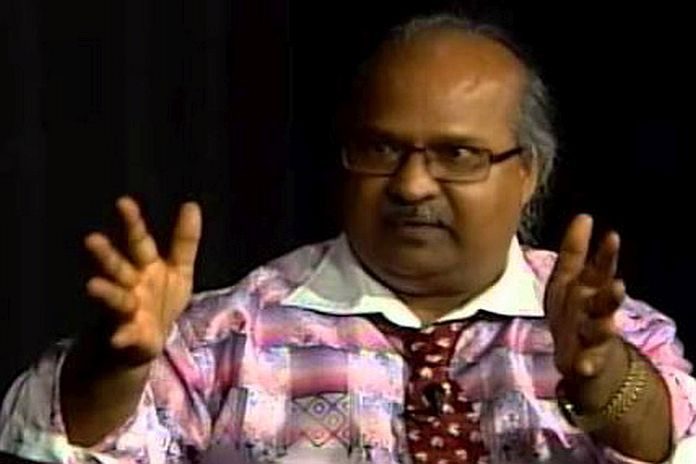The Caribbean Voice (www.caribvoice.org), a US and Guyana registered volunteer-driven, not for profit NGO focused on suicide and all forms of abuse prevention in Guyana, Trinidad & Tobago, Barbados, Jamaica and St Vincent & the Grenadines (in partnership with sister NGO ‘Say Enough is Enough Support Group) and the Caribbean Diaspora in North America.
By The Caribbean Voice
UK based cognitive-behavioral psychotherapist, Meera Baahu was recently quoted in the Guyana media stating: “Cultural change, promoting greater awareness and acceptance of mental health is necessary for promoting good mental health locally”.
In Guyana and the Caribbean, those working and volunteering on the mental health landscape are not only already aware of the need for greater awareness, sensitization, and education, but are actively engaged in delivering these necessities. And so, we wonder about the need to bring someone from the UK to inform of the obvious.
In the same vein, we also wonder why bring overseas ‘experts’ to spread misinformation and inaccuracies. After all mental health issues are not a product of culture but social, economic and political realities and the consequential stressors and emotional/psychological deficits. This has been and continues to be borne out by the work of The Caribbean Voice and other stakeholders, supported by primary info gathered through our many surveys and the empirical evidence garnered through our workshops, outreaches, and varied interactions.
At the third Caribbean symposium on suicide, held in May this year in Trinidad and Tobago, suicidologist, Dr Silvia Canetto of Colorado State University, presented a paper on ‘cultural scripts of suicidal behavior, the implicit and culturally specific blueprints for when, where and how people engage in suicidal behavior – and how to respond to such behavior’.
However, Dr Canetto’s references are to societies that are significantly homogeneous – religious such as Islamic states, or tribal such as the Eskimos.
In fact, as much as those scripts are ‘cultural’ they are more broadly social/societal because of the homogenous nature of the societies but the causes/triggers for suicide are same as obtain globally – poverty, abuse, alcohol, drugs use, the Werther effect, depression and other mental illnesses (Suicide among Inuit: Results from a large, epidemiologically representative follow-back study in Nunavut; Eduardo Chachamovich and others).
The research and attendant literature reveal that similar findings exist for suicide in Islamic nations and among Indian farmers, [for example].
Besides, Dr Canetto’s presentation made no references to heterogeneous societies such as Guyana, Trinidad and Tobago and other Caribbean nations simply because her argumentation does not fit such mental health landscapes. In effect, it is not culture that drives suicide but overall attitudes, which become normative over time. Thus, all scripts of suicidal behavior are social/societal, transcending all groups – cultural, religious, ethnic, gender and otherwise.
According to president of The Caribbean Voice: “Culture is being used as a scapegoat by individuals, entities, and governments to excuse concerted and comprehensive efforts to address mental health with Caribbean nations providing a minuscule budgetary allocation for such care. In fact, most Caribbean nations allocate less than a small percentage of their health budget to mental health with only Suriname exceeding six percent at any given time”.
The Guyana government is in possession of a National Mental Health Action Plan 2015-2020, drafted under the Peoples Progressive Party (PPP) and finalized under, A Partnership for National Unity (APNU).
This plan states, “Complex socio-cultural factors and the presence of a mental disorder are likely very significant attributable risk factors.” However, “Risk factors for mental illness in Guyana are related to environmental, lifestyles, biological and psychosocial factors and include, social class, gender, racial conflicts, housing, occupational risks, access to services, smoking, limited national policies, globalization, macroeconomics, national politics, and urbanization.”
This indicates that culture is used in an encompassing rather than a group-specific manner, making it clear that it is not cultural change itself that is required but a change in attitudes.
The simple fact is that the ‘culture’ argument does not apply to the Caribbean. Thus, instead of giving scope and credence to flying visit ‘experts’ who sow confusion and misinformation, is it now time to affirm and foster the work of those who are familiar with the realities that prevail? It is these stakeholders who know that it’s not a cultural change that is needed but an attitudinal change at both the governmental and individual/community levels, which can only be catalyzed by all-stakeholders collaboration, spearheaded by the government, and reaching across the nation on an ongoing basis.
The Guyana ‘Plan of Action’ itself, is comprehensive and focused, but its implementation has been mostly at the level of rhetoric and especially so concerning collaboration building. With hundreds of entities and activists involved in mental health activism and advocacy, at some level across Guyana, the government arbitrarily collaborates with a selective handful while the rest are completely side-lined and ignored. As well, there is hardly any piggybacking, or inter-agency/ministerial collaboration, which would broaden outreach and scope at a minimal cost.
Based on content analyses of the media and empirical evidence it would seem that mental health plans where they exist in the rest of the Caribbean (Trinidad and Tobago, Jamaica, Barbados, Suriname, Grenada, Bermuda, Belize, Montserrat and Turks, and Caicos), also do not identify culture, per se, as a significant factor driving mental health issues.
And it would also seem that mental health care is as piecemeal and ad-hoc in the rest of the Caribbean as it is in Guyana, although Jamaica seems more advanced than other Caribbean nations in health care delivery.
Need help!
If you need help for a suicidal person or an abused victim please reach out to any related hotlines where you live, any NGOs offering such help or any ministry of health or social protection – for contact info please check here: http://caribvoice.org/resources.html
The Caribbean Voice can be reached via email at caribvoice@aol.com or what’s app number 646-461-0574.
You can also reach out on Facebook to Annan Boodram (North America), Bibi Ahamad (Guyana) Tynika James (Trinidad & Tobago), Kissandra Fox (Barbados).





